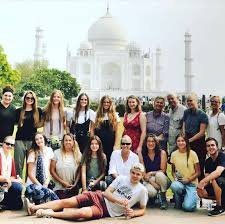
In the dynamic and ever-evolving landscape of the travel industry, the role of a team leader holds significant importance. Whether it’s coordinating complex itineraries, managing diverse teams, or ensuring seamless customer experiences, the team leader serves as the linchpin that keeps everything running smoothly. In this article, we delve into the multifaceted responsibilities of a team leader in the realm of travel, exploring how they navigate challenges and drive success.
Understanding the Role
A team leader in travel acts as the primary point of contact between various stakeholders, including team members, clients, vendors, and management. They are responsible for overseeing all aspects of a project or trip, from planning and execution to troubleshooting and post-trip analysis. Effective leadership in this context requires a blend of strategic thinking, interpersonal skills, and industry expertise.
Strategic Planning and Coordination
One of the core responsibilities of a team leader in travel is strategic planning. This involves developing comprehensive itineraries, managing budgets, and coordinating logistics to ensure smooth operations. Whether it’s arranging transportation, accommodation, or activities, meticulous planning is essential to delivering exceptional travel experiences.
Moreover, team leaders must stay abreast of industry trends and destination-specific nuances to anticipate potential challenges and capitalize on opportunities. This proactive approach not only enhances the overall travel experience but also mitigates risks and ensures client satisfaction.
Team Management and Development
A successful team leader understands that their greatest asset is their team. Effective management involves fostering a collaborative and supportive work environment where team members feel valued and empowered to excel. This includes assigning roles and responsibilities based on individual strengths, providing constructive feedback, and facilitating professional development opportunities.
Furthermore, in the context of travel, team leaders must navigate cultural differences and language barriers, particularly when leading diverse teams or serving international clients. Strong communication skills and cultural sensitivity are essential for building rapport and fostering effective collaboration across borders.
Crisis Management and Problem-Solving
In the unpredictable world of travel, unforeseen challenges can arise at any moment. Whether it’s flight delays, weather disruptions, or logistical hiccups, the ability to think quickly on your feet and adapt to changing circumstances is paramount. A skilled team leader remains calm under pressure and leverages their problem-solving skills to find creative solutions that minimize disruptions and keep the journey on track.
Moreover, effective crisis management extends beyond addressing immediate issues—it involves proactive risk assessment and contingency planning to mitigate potential pitfalls before they escalate. By anticipating challenges and developing robust contingency plans, team leaders can ensure a higher level of preparedness and resilience in the face of adversity.
Client Relationship Management
Building and maintaining strong client relationships is another critical aspect of the team leader’s role in travel. From initial inquiries to post-trip feedback, effective communication and personalized service are key to exceeding client expectations and fostering long-term loyalty.
Team leaders must possess strong interpersonal skills and a customer-centric mindset, actively listening to clients’ needs and preferences and tailoring solutions accordingly. By delivering personalized experiences and demonstrating a genuine commitment to client satisfaction, team leaders can differentiate their services in a competitive market and drive positive word-of-mouth referrals.

Leveraging Technology and Innovation
In an increasingly digital world, technology plays a pivotal role in enhancing efficiency and optimizing the travel experience. Team leaders must stay abreast of the latest technological advancements, from booking platforms and itinerary management tools to communication apps and travel safety solutions.
By leveraging technology effectively, team leaders can streamline processes, enhance communication, and deliver a more seamless and personalized travel experience for clients. Moreover, embracing innovation allows team leaders to stay ahead of the curve and differentiate their services in a rapidly evolving industry landscape.
Conclusion
In the fast-paced and competitive world of travel, the role of a team leader is indispensable. From strategic planning and team management to crisis resolution and client relationship management, team leaders wear many hats as they navigate the complexities of the travel industry.
By leveraging their leadership skills, industry expertise, and a proactive mindset, team leaders play a pivotal role in driving success and ensuring memorable travel experiences for clients. In an industry where every detail matters, the guidance and expertise of a skilled team leader can make all the difference between a good trip and an exceptional one.
